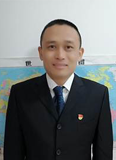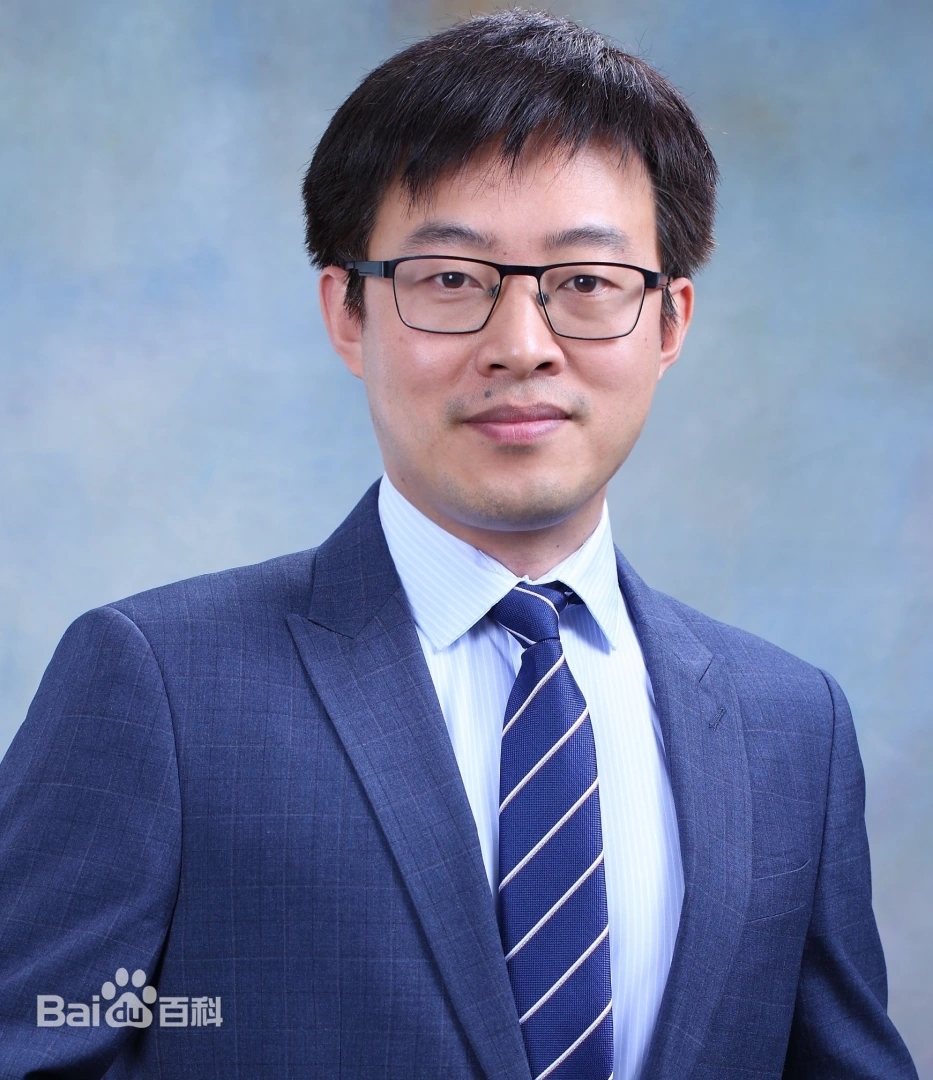
Speakers
| Prof. Zuoqing ZhuUniversity of Science and Technology of ChinaIEEE FellowProfessor Zhu Zuoqing pursued his doctoral degree at the University of California, Davis, from September 2003 to July 2007. From July 2007 to January 2011, he served as a senior engineer in the Service Provider Technology Group at Cisco Systems headquarters in the United States. In 2011, he was selected for the "New Century Excellent Talents Support Program" by the Ministry of Education of the People's Republic of China. From January 2011 to June 2014, he was an associate professor and doctoral supervisor in the Department of Electronic Engineering and Information Science at the University of Science and Technology of China. In June 2014, he became a professor and doctoral supervisor in the same department. In November 2022, he was elected a Fellow of the IEEE (Institute of Electrical and Electronics Engineers). Professor Zhu Zuoqing’s research areas include data centers, programmable networks, network automation, and optical communication networks. |
Prof. Xueye Chen, Ludong UniversityChen Xueye, professor, Ph.D., and graduate advisor, has been recognized as an outstanding scientific and technological worker at the provincial level, a Young Scholar of the Taishan Scholars Program, a top young talent in the province, a talent of the provincial Hundred-Thousand-Ten Thousand Project, and an excellent master's thesis advisor at the provincial level. He has served as a visiting scholar at Nanyang Technological University in Singapore and Hong Kong Polytechnic University. His research focuses on micro-nano fabrication, flexible MEMS intelligent sensors, and microfluidic systems, targeting applications in wearable devices, healthcare, and modern agriculture. He has received seven provincial-level awards, including the Provincial Natural Science Award and the Provincial Natural Science Academic Achievement Award. He has led over ten projects funded by the National Natural Science Foundation and the Provincial Natural Science Foundation. He has published several top academic papers and holds multiple authorized patents. He serves as a guest editor for special issues of the international academic journal Micromachines and is a committee member for several international academic conferences, such as MSMME, MTMCE, and ICOIP. He is also a reviewer for several renowned international journals, including Small, Biosensors and Bioelectronics, and Lab on a Chip, as well as an evaluation expert for various academic institutions, including the National Natural Science Foundation and the Degree Center of the Ministry of Education. Many of his graduate students have been accepted to pursue their Ph.D. studies at prestigious double-first-class universities such as Peking University, Tianjin University, Xiamen University, Beijing Institute of Technology, Southeast University, South China University of Technology, National University of Defense Technology, Xi'an Jiaotong University, and Jilin University. Several students have also received national scholarships, university president scholarships, and various first-class academic scholarships. |
|
| Dr. Aniruddha Bhattacharjya, BCBRBAB Intercontinental Trading Solutions Private Limited, IndiaIEEE Senior Member, ACM Senior MemberAniruddha Bhattacharjya is a PhD Alumni of Tsinghua University. He was a PhD scholar (Chinese Government Scholarship (CGS) holder) in Department of Electronic Engineering, Beijing National Research Center for Information Science and Technology, Tsinghua University, Beijing, China under supervision of Prof. Xing Li. This PhD work was supported by National Basic Research Program of China (2012CB316006), and National S&T Major Project (2015ZX03002010-002) and National Natural Science Foundation of China (No. 61631013). He got full travel and conference funding from Tsinghua University's School of Information Science and Technology (SIST) and the Key Laboratory of Universal Wireless Communications (Beijing University of Posts and Telecommunications), Ministry of Education, P.R.China (No.KFKT- 2014101) and National Basic Research Program of China (2012CB316000) to present his paper in Cambridge University, UK. Department URL https://www.ee.tsinghua.edu.cn/info/1039/1186.htm He got best paper award in ACM ICC 2016, in Cambridge University, U.K. He has published 48 above International conferences and journal papers and book chapters. He has 16 years 5 months above experiences. He has a Chinese Innovation patent granted. He is Senior member of IEEE and ACM, IEEE Communication Society and IEEE Computer Society. ACM-https://awards.acm.org/award-recipients/bhattacharjya_3449132 He is the Founder Chairman and Executive Director (DIN 10414713) of BCBRBAB INTERCONTINENTAL TRADING SOLUTIONS PRIVATE LIMITED. URL : https://bcbrbabits.com He is Reviewer of 1. ACM Computing Surveys 2. IEEE Transactions on Information Forensics and Security 3. IEEE Transactions on Industrial Informatics 4. IT Professional (IEEE Computer Society) 5. IEEE Transactions on Green Communications and Networking 5. IEEE Transactions on Multimedia 6. IEEE Open Journal of the Communications Society 7. IEEE Access 8. IEEE Embedded Systems Letters (ESL) 9. IEEE Sensors Journal 10. Computers & Security 11. Future Generation Computer Systems. 12. Information Sciences 13. Blockchain: Research and Applications 14. Journal of King Saud University –Science (Elsevier) 15. Cluster Computing 16. PLOS ONE 17. Smart Science 18. MPDI Journals – I. Drones II. Sustainability III. Sensors IV. Processes V. Energies VI. Applied Sciences VII. Symmetry VIII. Electronics 19. Cybernetics and Systems 20. Malaysian Journal of Mathematical Sciences (MJMS) 21. International Journal of Computers and Applications (IJCA) 22. Discover Applied Sciences 23. Transactions on Emerging Telecommunications Technologies |
Prof. Haijun Zhang, University of Science and Technology BeijingIEEE Fellow Zhang Haijun is a professor and doctoral supervisor, a recipient of the National Outstanding Young Scientist Fund, an IEEE Fellow, the Dean of the School of Intelligent Science and Technology at Beijing University of Science and Technology, the Executive Dean of the National Academy of Engineering, a council member of the Chinese Institute of Electronics, a fellow of the China Communication Society, the rotating chair of the Youth Scientist Club of the Chinese Institute of Electronics, and the Deputy Chair of the Youth Working Committee of the China Communication Society. He completed his postdoctoral research at the University of British Columbia (UBC) in Canada. He has led several projects, including the National Outstanding Young Scientist Fund project, National Key Research and Development projects, joint key projects of the National Natural Science Foundation, special projects in mobile communications, and JWKJW projects. He has published over 100 papers in top-tier SCI journals, including IEEE 1st and 2nd quartile journals. He serves on the editorial boards of IEEE journals such as IEEE TWC, IEEE TCOM, and IEEE TIFS, is the Chair of the IEEE Green Communications and Computing Technical Committee, and was the Chair of the 6th International Conference on Game Theory and Networks. He has received several prestigious awards, including the IEEE Communication Society Best Young Author Paper Award, the IEEE Communication Society Asia-Pacific Outstanding Young Researcher Award, the International Union of Radio Science Young Scientist Award, the China Youth Science and Technology Award, and has been recognized as a highly cited researcher by Elsevier in China, a highly cited scientist by Clarivate Analytics, an IEEE Distinguished Lecturer, and has received the First Prize in Natural Science from the China Communication Society. |
|



